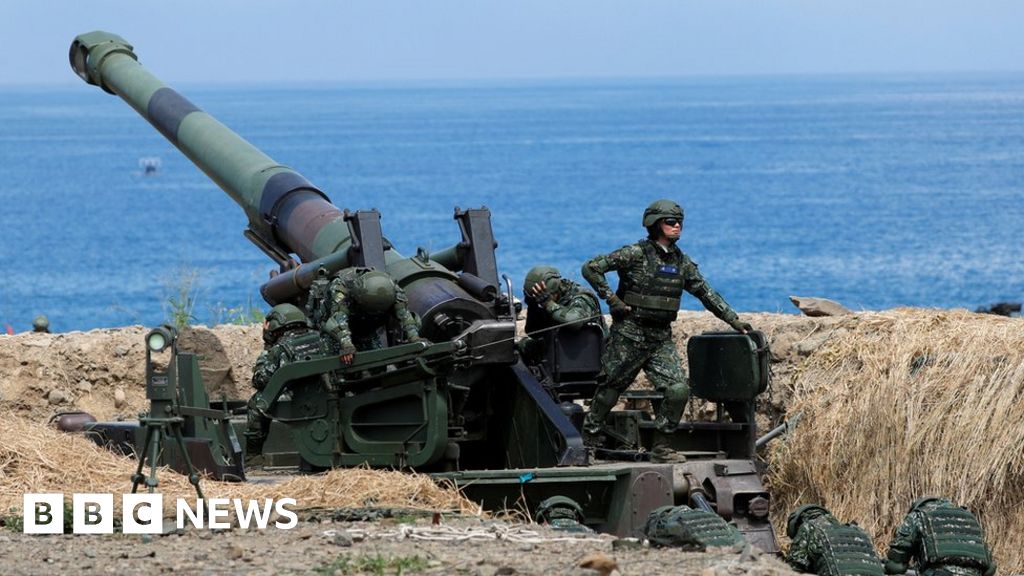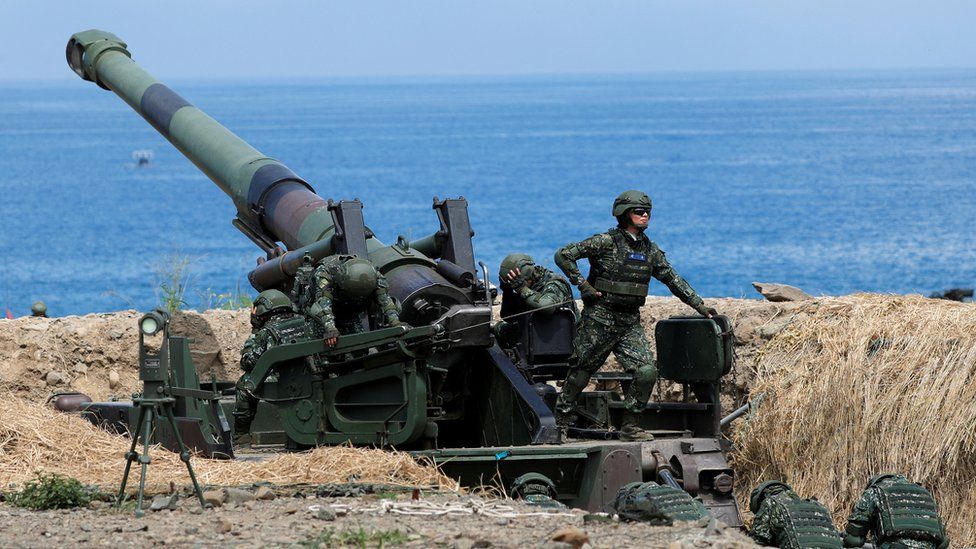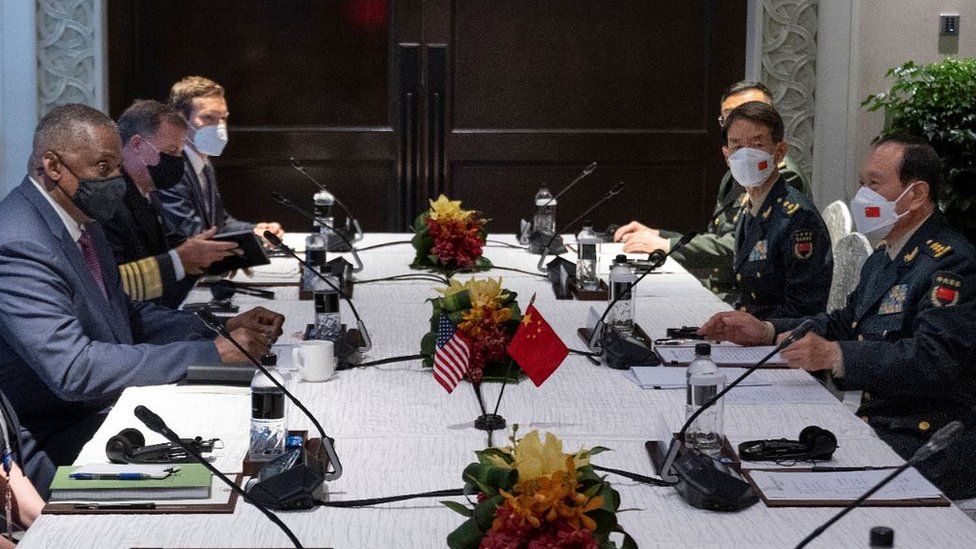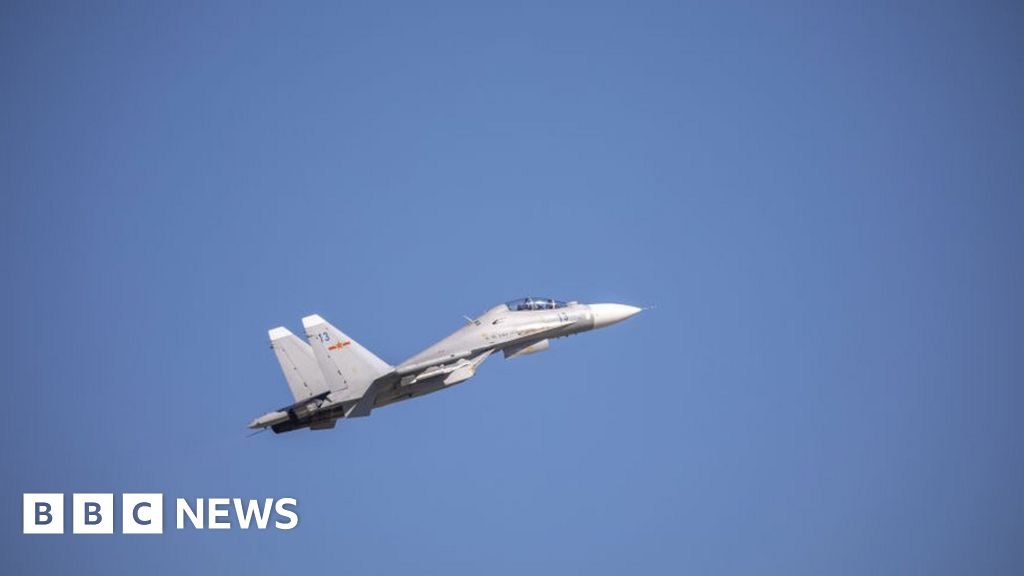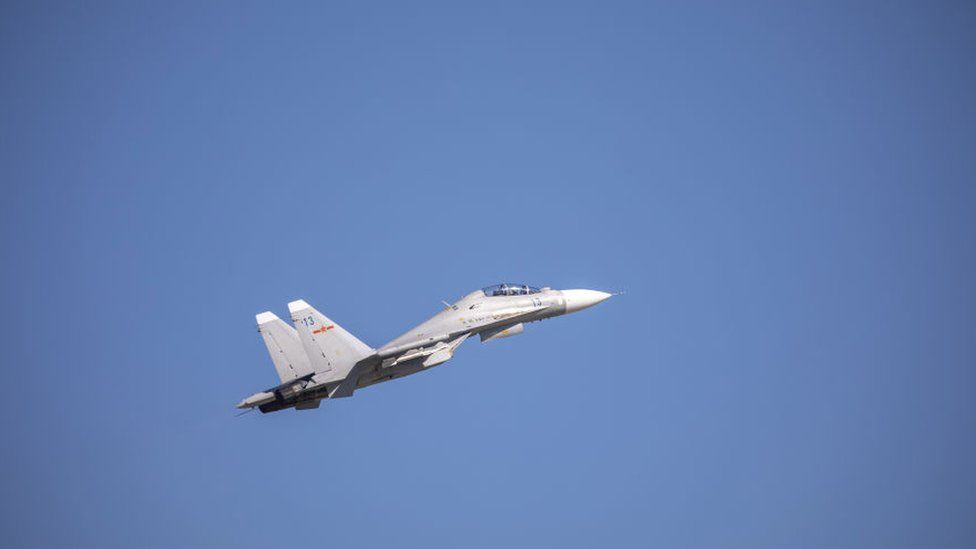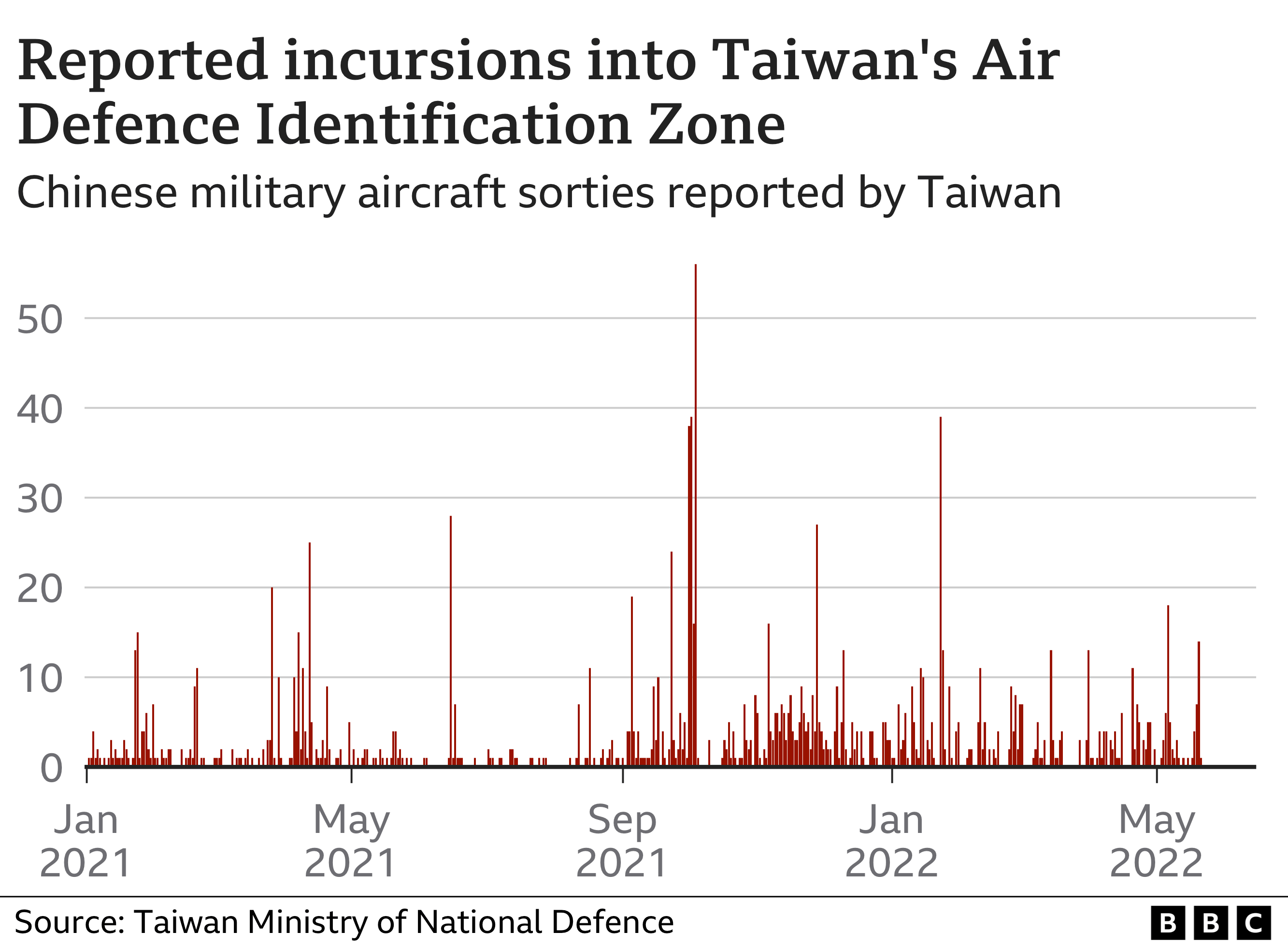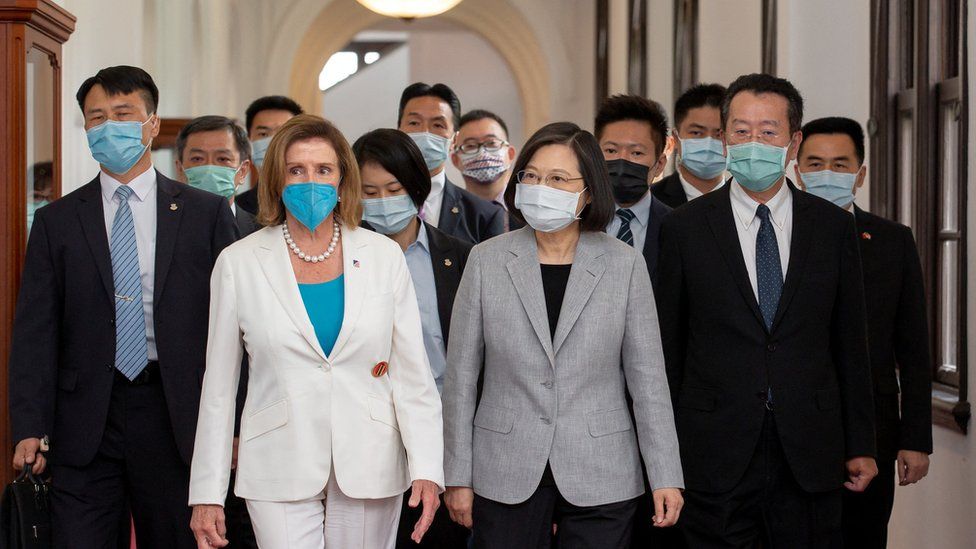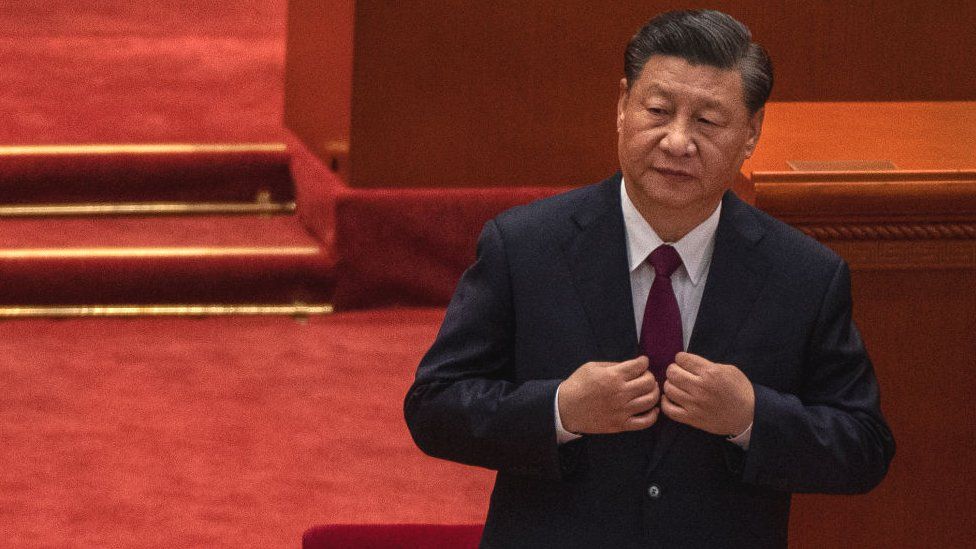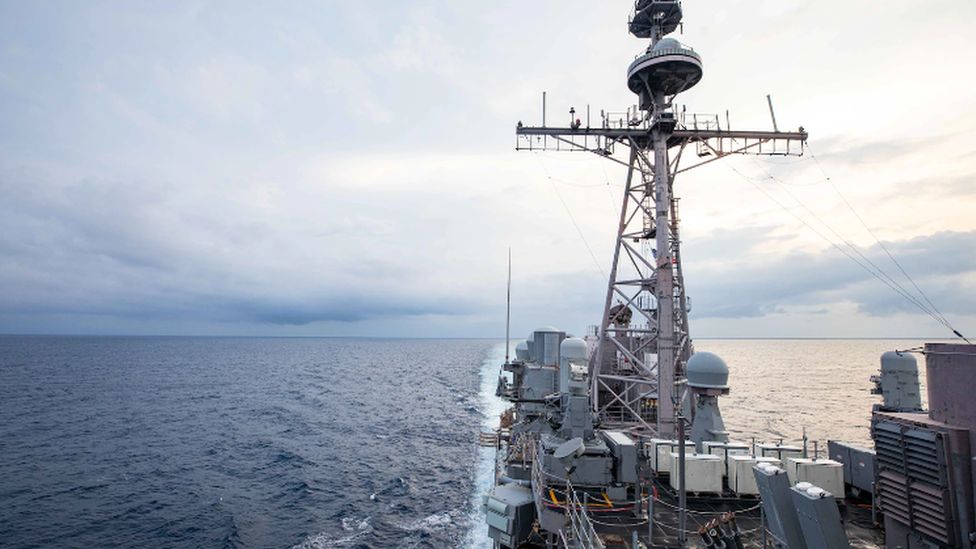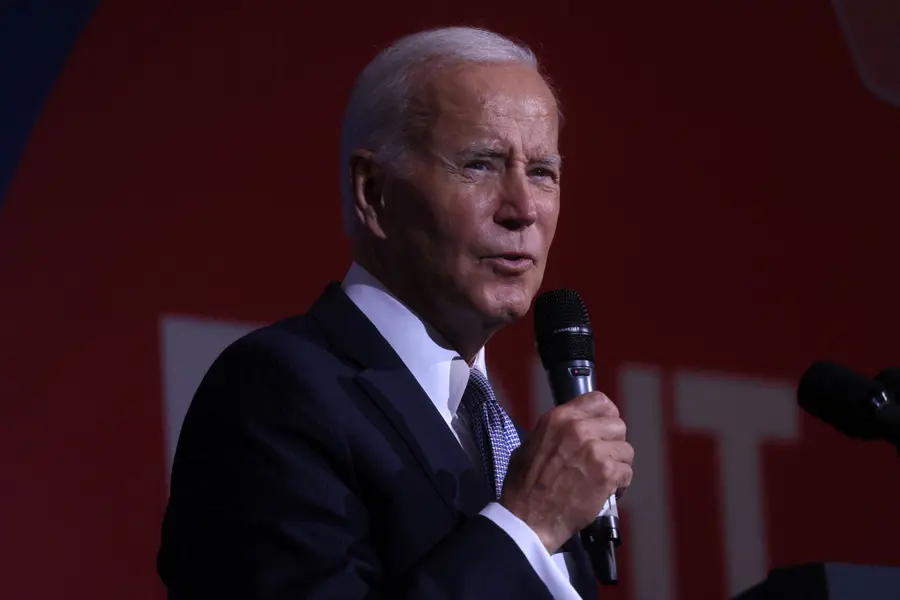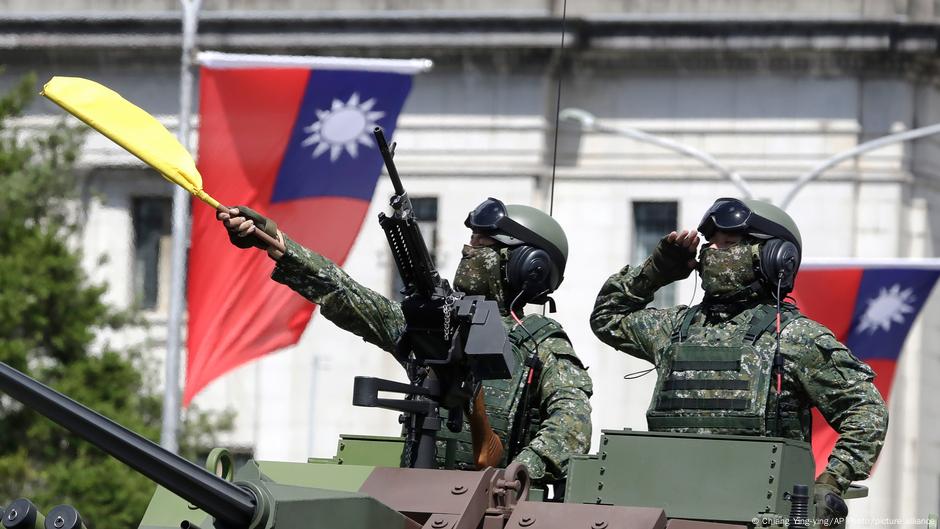
Can Russia's Ukraine invasion prompt China to attack Taiwan? – DW – 02/28/2022
Experts believe that Russia's unilateral invasion of Ukraine could embolden China to attack Taiwan, which Beijing lays claims on. How will the West react to a potential Taiwan invasion?
Experts believe that Russia's unilateral invasion of Ukraine could embolden China to attack Taiwan, which Beijing lays claims on. How will the West react to a potential Taiwan invasion?
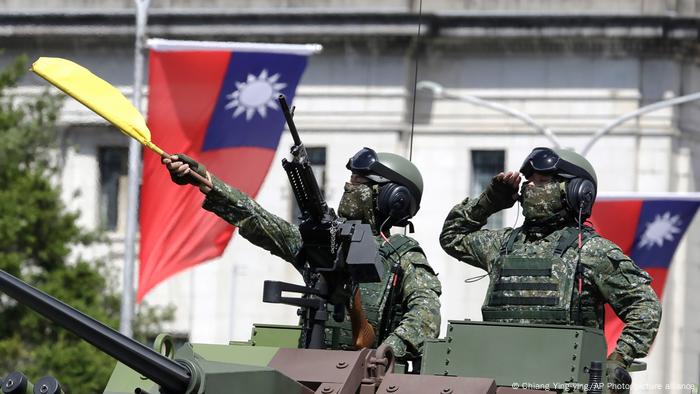
Wary of China, Taiwan calls for vigilance amid Ukraine escalation
As Russia continues to bomb Ukrainian cities, observers are paying close attention to China's reaction to the conflict.
Parallels are being drawn between Russia's actions in Ukraine and China's claims on Taiwan.
China's official position on the Ukraine conflict remains vague, although Beijing has dismissed comparisons between Taiwan and Ukraine.
On February 23, Chinese foreign ministry spokeswoman Hua Chunying said comparisons between Taiwan and Ukraine showed a "lack of the most basic understanding of the history of the Taiwan issue."
"Taiwan is not Ukraine," she said, reiterating that Taiwan is an "inalienable part of China's territory."
Hua accused Taiwanese authorities of making the Ukraine issue a "hot topic."
Irrespective of China's official statements on the Ukraine conflict, Taiwanese authorities are looking at the developments in Ukraine with concern.
Beijing has long claimed sovereignty over the democratic island and has vowed to seize it one day, with force, if necessary.
Similarities and differences between Ukraine and Taiwan
The Taiwanese government has condemned the Russian invasion of Ukraine, emphasizing the differences between the situations in Taiwan and Ukraine.
"I want to emphasize that the situation in Ukraine is fundamentally different from the one in the Taiwan Strait," said Taiwan President Tsai Ing-wen in a statement on February 25.
"The Taiwan Strait provides a natural barrier, and Taiwan has its own unique geostrategic importance. Our military is committed to defending our homeland and continues to improve its ability to do so, and our global partners are contributing to the security of our region, giving us strong confidence in Taiwan's security," Tsai added.
Some experts say that while China dismissed the comparison between Ukraine and Taiwan, the communist government in Beijing is still analyzing the international community's reaction to Russia's invasion of Ukraine.
"Beijing will certainly draw lessons that it can use in its strategy toward Taiwan," Bonnie Glaser, director of the Asia Program at the German Marshall Fund of the United States, told DW.
"China will observe the cohesiveness of NATO and other US alliances, and their willingness to incur costs in imposing sanctions on Russia. They will closely follow Russia's hybrid warfare playbook, and how it combines disinformation with cyberattacks to influence the situation on the ground and shape attitudes toward the conflict," she added.
Security analysts are also of the view that China is aware of logistical differences between Moscow's invasion of Ukraine and its possible attack on Taiwan. While the Russian military can cross over into Ukraine, China can't do the same in a potential conflict with Taiwan, according to Chen Fang-Yu, a political science professor at Soochow University in Taiwan.
"China is going to assess where are the opportunities, and what they can take from the Ukraine crisis," Chen told DW.
Lev Nachman, a postdoctoral research fellow at Harvard University's Fairbank Center for Chinese Studies, says that China is trying to balance its act vis-a-vis the Ukraine conflict.
"China wants to give themselves some diplomatic room so that people don't necessarily expect China to behave in the same aggressive way as Russia has, at least in the short term," he told DW.
"If it is China's moment to retake Taiwan, they wouldn't act the same way as Russia," he added.
How will the West respond to potential China attack?
Experts say that the West's response to a potential conflict between China and Taiwan would likely be different from how they have responded to the war in Ukraine. So far, Western countries have been imposing economic sanctions on Moscow and are supplying military equipment as their way of supporting Ukraine.
Nachman says the US' responses will be different to China's potential aggression against Taiwan.
"The US would likely intervene if Taiwan is attacked by China," he said. "If Taiwan is overly provocative, which is highly unlikely, then the odds of the US military support would decrease. Taiwan does not necessarily have a blank check to assume that it can do whatever it wants and the US would defend it," he underlined.
Analyst Glaser says that the US would likely intervene militarily if China attacks Taiwan unprovoked.
While the US has long upheld the concept of "strategic ambiguity" vis-a-vis Taipei, Chen believes there are signs that Washington's policies towards Taiwan are becoming more straightforward by the day.
"Since Biden took office, the US government has been highlighting the importance of maintaining peace and stability across the Taiwan Strait in many diplomatic statements that it has issued with allies," he told DW.
"This shows that Washington cares a lot about the situation across the Taiwan Strait. On the contrary, the US never made similar statements about Ukraine, and still maintains that it would not send troops to Ukraine," he added.
In her public statement on Friday, Taiwanese President Tsai said that Taipei continued to strengthen its civil defense and ability to counter cognitive warfare, which could prevent external forces from using the situation in Ukraine to manufacture and spread disinformation that aims to undermine morale among the Taiwanese people.


